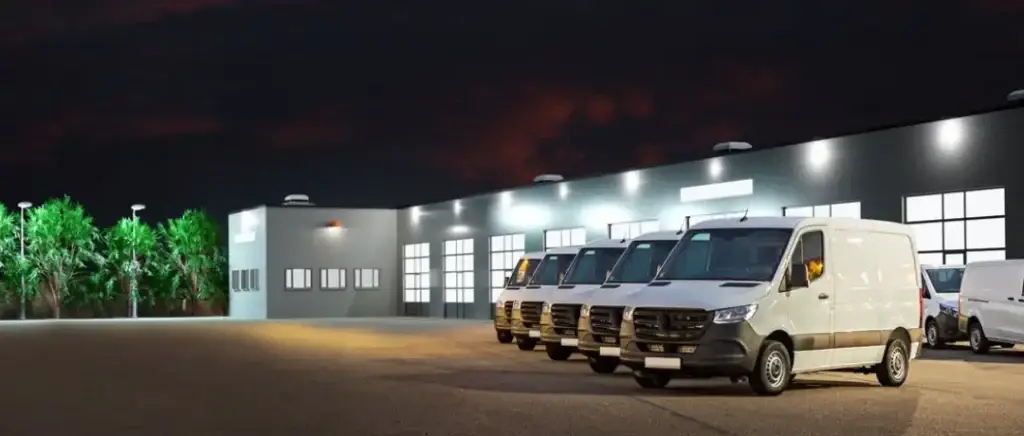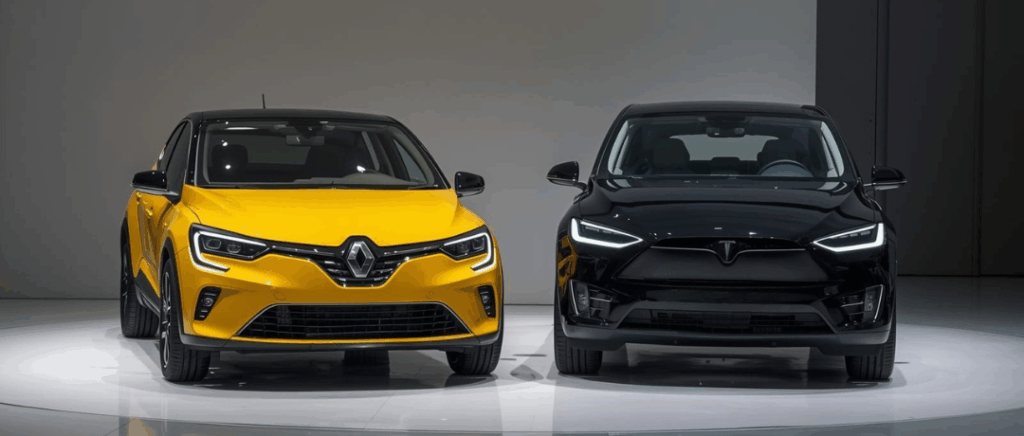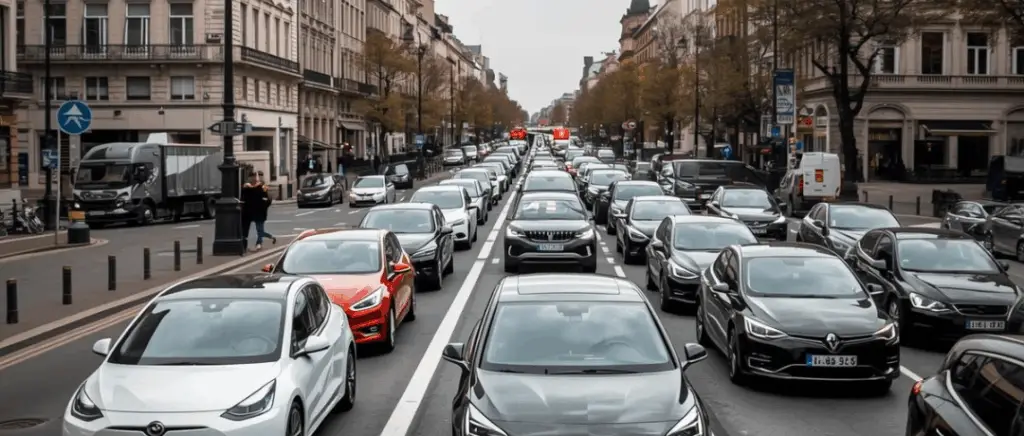Why corporate fleets will accelerate electrification in 2025
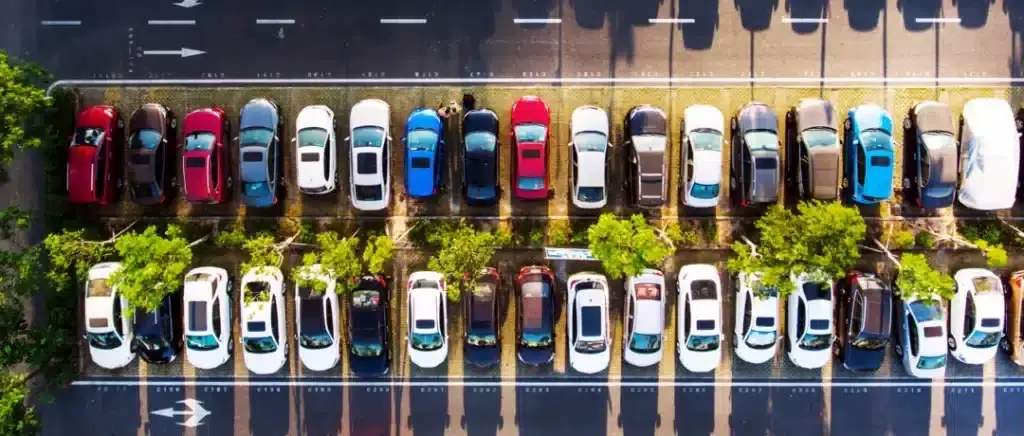
The year 2025 marks a decisive turning point in the electrification of French corporate fleets. Several factors are converging to create a favourable ecosystem for this accelerated transition, transforming what was once a regulatory constraint into a genuine economic opportunity.
Three main dynamics explain why businesses are becoming the main drivers of electrification:
1) Unavoidable regulatory constraints
- The Climate and Resilience Act requires 40 % of fleet renewals (> 100 vehicles) to be low-emission by 2025, and 70 % by 2030.
- The Mobility Orientation Law (LOM) is also encouraging employers to include clean vehicles in their fleets, particularly for employee transport.
In concrete terms A company that delays its transition risks financial penalties, as well as restrictions on use in urban areas.
Over and above regulatory constraints, companies are discovering that the electrification of their fleets meets a number of strategic challenges.
2) CSR pressure and brand image
The ecological transition has become a matter of reputation and business.
- B2B customers require partners committed to reducing their carbon footprint.
- EmployeesEmployees who are increasingly sensitive to climate issues see the choice of a company electric vehicle as a strong sign of their employer's commitment.
So an electrified fleet is no longer just a regulatory requirement: it's also a way of improving the quality of life for drivers. commercial competitiveness.
3) The rise of Low Emission Zones (LEZ)
By 2025, all of France's major cities must implement an EPZ. A powerful accelerator for the transition.
Results The most polluting internal combustion vehicles can no longer circulate freely.
Transport, delivery and service companies no longer have a choice: without electric vehicles, it will be impossible to continue working in city centres.
We can also see that the technology has matured. Indeed, the professional vehicles of 2025 have very little in common with their predecessors.
Autonomy is usually in excess of 400 kilometres, meeting the needs of the majority of professional users.
More importantly, therecharging infrastructure has become much denser, reducing the anxiety associated with theautonomy.
Registrations up sharply despite overall market downturn
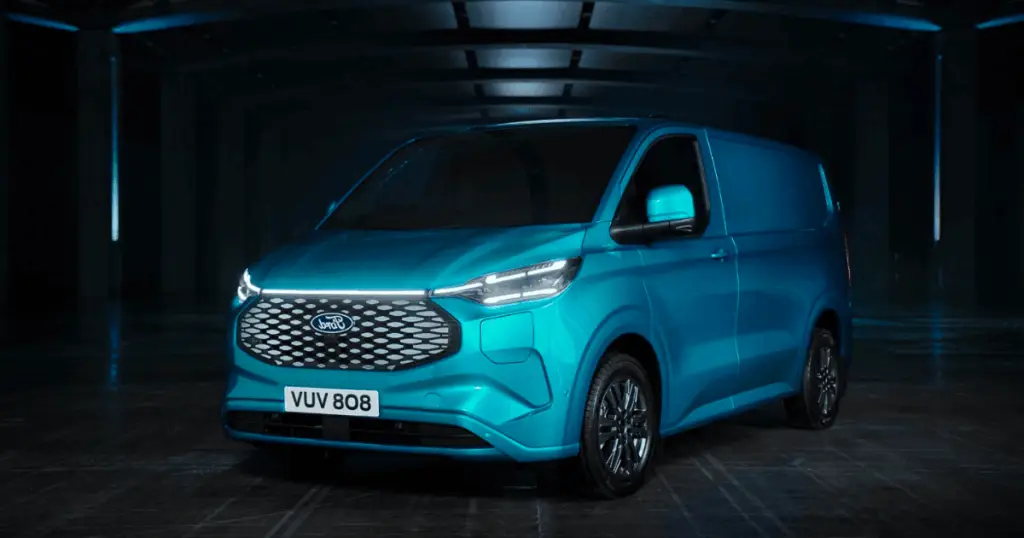
The overall car market in France has been slowing since 2023, impacted by inflation and tighter credit. However, the electric vehicle segment is holding up well, driven by... corporate fleets.
Some key trends:
- Registrations of company electric vehicles rose by more than 40 % in the first half of 2025.
- Conversely, registrations of combustion-powered passenger cars are falling, as consumers remain sensitive to purchase price, usage constraints and uncertainty over residual value.
- The electric light commercial vehicles are exploding, as they enable drivers to comply with the constraints of the EPZs and benefit from tax breaks.
- Registrations of company electric vehicles rose by more than 40 % in the first half of 2025.
This dynamic trend proves one thing: companies are compensating for the sluggishness of the consumer market. They are therefore acting as a stabiliser, or even a driving force, for the electric car industry.
Fleet managers are more attracted to electric vehicles than plug-in hybrids
For several years, plug-in hybrids were seen as an acceptable compromise: a little electric for short journeys, petrol for long ones. But by 2025, their appeal is fading.
Why is this?
- Unfavourable tax treatment From January 2025, plug-in hybrids no longer benefit from a specific tax allowance. They are now treated in much the same way as combustion engines. Conversely, the French tax system clearly favours 100 % electric vehicles. The total exemption from Taxe sur les Véhicules de Société (TVS) applies only to electric vehicles, creating a substantial economic advantage for large fleets.
- Disappointing real consumption Many users don't recharge their PHEVs regularly, which increases fuel consumption.
Result: the TCO explodes. - Public policy The French government is reserving its biggest incentives for 100 % electric vehicles.
For a fleet manager, the conclusion is clear: pure electric is more competitive in the long term.
Get a charging point and calculate your monthly payments.
Would you like to rent your future charging points? Beev offers you affordable deals and quality charging stations tailored to your needs.
Tax and regulatory advantages that boost business choice

The fact that electric cars will be so attractive to businesses in 2025 is also due to an extremely favourable tax framework.
1) The increased tax allowance of 70 %
Since February 2025, eco-certified electric vehicles have benefited from a tax allowance of 70 % on the benefit in kind (AEN), capped at €4,582 per year.
This considerably reduces the tax cost for both the company and the employee, and improves the attractiveness of company electric vehicles.
2) Exemption from TVS
All electric vehicles are exempt from company vehicle tax (TVS), which represents savings of several hundred euros per vehicle every year.
3) Acquisition aid
- Ecological bonus maintained for certain vehicles, in particular light commercial vehicles.
- Full damping available on certain models.
- New incentive tax: the Finance Act 2025 introduces a tax to encourage the electrification of company fleets.
4) A combined effect on TCO
When all these subsidies are added up, an electric vehicle can cost 20 to 30 % less than an equivalent internal combustion vehicle over its entire life cycle.
What impact will this have on the fleet of commercial vehicles in France?
The rise of electrified fleets is profoundly transforming the market. This structural evolution goes beyond simple technological replacement to impact the entire professional automotive ecosystem:
1) Long-term leasing companies are adapting their catalogues and putting forward attractive offers for electric vehicles. Professional electric vehicles, which are generally well-maintained and have low mileage, offer interesting opportunities for private individuals and small businesses.
2) Manufacturers reserve part of their production for B2B orders, which are considered more stable and profitable.
3) The second-hand market is already benefiting from an influx of ex-fleet electric vehicles, which are fuelling demand from private customers.
Result: the professional car fleet is becoming the main lever for the spread of electric vehicles in France. This professional development is generating new training and support needs. At Beev, we are seeing a growing demand for consulting expertise to support this transformation, from the needs audit to the operational implementation of electrical solutions.
Electrified fleets: a strategic lever for achieving climate objectives
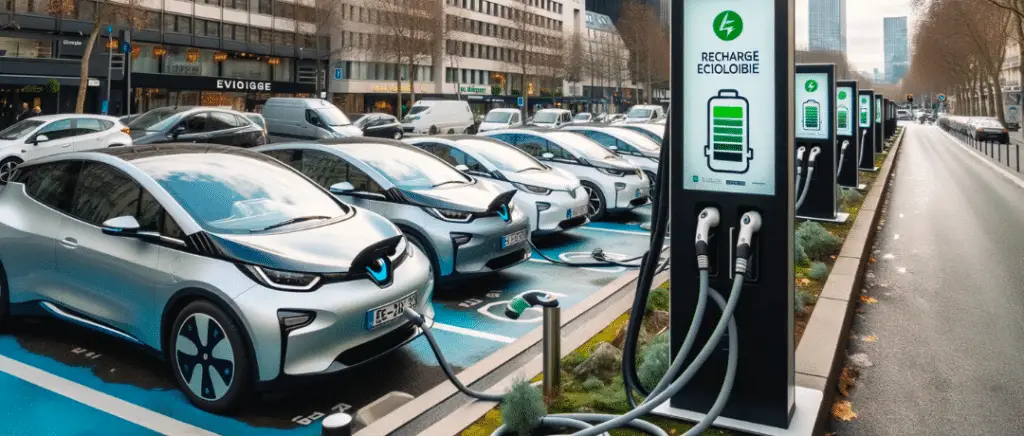
The electrification of company fleets goes well beyond economic and regulatory issues, and forms part of a global climate strategy. Companies are not just economic players: they are also becoming players in the ecological transition.
- By electrifying their fleets, they are massively reducing CO₂ emissions.
- They improve their CSR carbon footprint.
- They contribute to achieving the objectives set by France and the European Union: carbon neutrality by 2050.
So it's not just an obligation, it's also a strategic choice:
- To stay competitive,
- To attract and retain talent,
- To meet the demands of increasingly demanding customers.
Conclusion: corporate fleets, catalysts for the electric revolution
The year 2025 confirms the driving role of company fleets in the electrification of the French car fleet. This momentum, driven by a convergence of tax incentives, regulatory constraints and technological maturity, is transforming the business car landscape for good.
The future looks bright. Manufacturers are adapting their ranges to professional needs, the recharging infrastructure is becoming denser and the economic advantages of electric vehicles are growing.
Electric mobility has never been so accessible to corporate fleets. Whether you want to optimise your costs, improve your environmental impact or anticipate future regulations, Beev can help you make this strategic transition.
Manage your fleet easily with our dedicated tool

A fleet management tool from A to Z
- Add your fleet and employees in just a few clicks
- Plan your transition to electric vehicles and monitor your CSR objectives in real time
- Centralise your expenses

